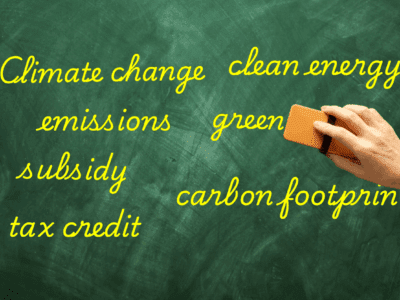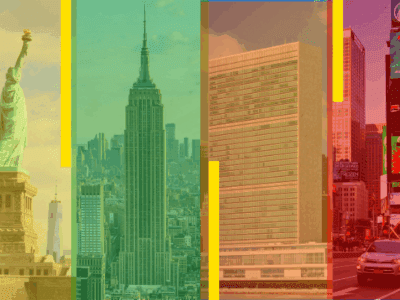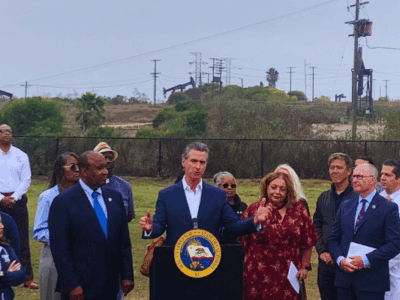Roger Cohen Has a Lazy Day
I suppose that it’s tough writing two 750-word columns each week; that’s why the NYT’s Roger Cohen decided to rehash his hatchet job on organic foods in today’s paper.
In a previous column, Cohen ridiculed fans of organic food, pointing to a Stanford study finding that organic foods were no healthier for human beings than conventionally processed foods. That’s fair enough, although the real reason to go organic is the health of the planet, not the the health of the human body.
Referencing his critics, Cohen bemoans “this shrieking, solipsistic age.” He then calls those who favor organics “upper-middle-class narcissists” and dismisses their concerns as an “elitist freakout.” What a way to advance reasoned debate! He then acknowledges that those critics are, well, right about a lot of things.
No matter! He is still attacking narcissists:
Put bluntly, without fertilizer the world grounds to a halt. Without herbicides, pesticides and insecticides, yields will not rise in areas, like the corn belt of East Africa, where they must. Moreover, as the World Health Organization says, “chemical control (use of pesticides) is still the most important element in the integrated approach” to control of vector-borne diseases like malaria and dengue — not, I know, a big problem in Notting Hill Gate or the West Village.
Furthermore:
First, in this new era of land pressure, organic farming requires more land for a given unit of crop. It will therefore impinge on wilderness. Second, when an organiac gets sick, he or she will likely not reject the latest brilliant chemical solution for the disease: Why then reject such solutions for crops? Third, “organic” is a slick marketing tool that may be very misleading when a farmer who, say, raises great free-range chickens but can’t ship in feed from organic-certified mills is unable to use the label. Fourth, the World Health Organization view on GM: “No effects on human health have been shown as a result of the consumption of such foods by the general population in the countries where they have been approved.”
I’m not sure what to make of all this because Cohen is attacking a position that, at least as far as thoughtful environmentalists are concerned, is not occupied. His biggest problem is that he is raising a spectre of something that does not exist. Assume he is right about dengue fever and malaria: those diseases are tropical, and the vast majority of fruits and vegetables sold in the American market are from the United States — often Chile. So, snide comments about the West Village aside, that is the whole point: American consumers generally buy American grown produce. A large part of this might because of massive US food subsidies — a policy that Cohen has so far been completely silent on.
So what about tropical products, from places like Mexico or Ecuador? Perhaps — perhaps — in those cases, pesticides might be necessary, although given the vast amount of organic Mexican berries and organic Ecuadorian bananas I see in the market, I have my doubts. In any event, again — why is it that poorer countries seem to lack the sorts of techniques that the Nature study Ann cites suggests would increase crop yields through organic means? Cohen does not answer that question because he doesn’t ask it: he is too busy chasing after yuppies.
As for the others, we can go one by one:
1) Organic farming needs more land for a given unit of crop so it will impinge on wilderness. Cohen provides no link for the assertion, although Ann provides one here. But the point about organic farming is that the farmer is farming more than one crop per unit of land. The idea is to have a balanced ecosystem: so you get fewer, say, russet potatoes, but you get a whole lot of other breeds that are far less sensitive to certain kinds of blight. So you may very well get less unit of one crop but get just as many units of food in total. In any event, as the Nature study Ann cited states, several other methods asides from pesticides can significantly raise crop yields. And wilderness? Again, the Africa charade: where exactly is this wilderness that produce consumed in the United States is destroying? Cohen doesn’t say.
2) Organic consumers won’t reject chemical pharmaceuticals so they have no standing to reject organic food. This is just inane: because you want a necessary life-saving drug, you aren’t allowed to protest an unnecessary conventional strawberry? We’ll call it the Cohen Rule: unless you are willing to take any principle to its logical extreme and avoid any balancing whatsoever, you are not entitled to protest.
3) Organic is merely a “slick marketing technique” that poor farmers cannot afford. There is something to this, but what elese would Cohen have the environmental community do? Without some form of certification, no one knows how their produce was grown. His favored solution apparently is to shop blind. A more constructive alternative would be for, say, foreign aid to promote sustainable growing techniques and greater agricultural extension work. But Congress is hacking foreign aid apart, and Cohen, of course, has been silent about it.
4) Conventional produce is as healthy as organic produce. This is reasoned debate? Just repeating your talking points? Again, assume it’s true: it misses the point. Orgnic produce is about the planet, not the human body.
I actually don’t have strong feeling about organics: I’ve always tried to buy them because it helps reduce environmental damage, although sometimes that doesn’t work: for example, I’d rather buy conventional produce from California than organics from Chile because of the carbon footprint.
But I do feel pretty strongly that when someone has some of the most prominent journalistic real estate in the country, they should bother to make coherent arguments based on facts. Cohen fails that test here.







Reader Comments